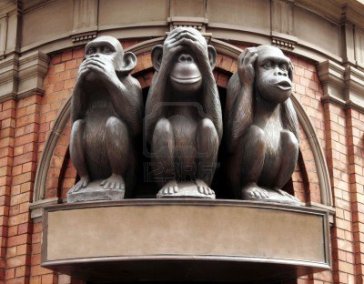The case for a new economics When the great crash hit a decade ago, the public realised that the economics profession was clueless … After 10 years in the shadow of the crisis, the profession’s more open minds have recognised there is serious re-thinking to be done … But the truth is that most of the “reforms” have been about adding modules to the basic template, leaving the core of the old discipline essentially intact. My view is that this is insufficient, and treats the symptoms rather than the underlying malaise … If we accept that we need fundamental reform, what should the new economics—“de-conomics” as I’m calling it—look like? First, we need to accept that there is no such thing as “value-free” analysis of the economy. As I’ve explained,
Topics:
Lars Pålsson Syll considers the following as important: Economics
This could be interesting, too:
Lars Pålsson Syll writes Schuldenbremse bye bye
Lars Pålsson Syll writes What’s wrong with economics — a primer
Lars Pålsson Syll writes Krigskeynesianismens återkomst
Lars Pålsson Syll writes Finding Eigenvalues and Eigenvectors (student stuff)
The case for a new economics
When the great crash hit a decade ago, the public realised that the economics profession was clueless …
After 10 years in the shadow of the crisis, the profession’s more open minds have recognised there is serious re-thinking to be done …
But the truth is that most of the “reforms” have been about adding modules to the basic template, leaving the core of the old discipline essentially intact. My view is that this is insufficient, and treats the symptoms rather than the underlying malaise …
If we accept that we need fundamental reform, what should the new economics—“de-conomics” as I’m calling it—look like?
First, we need to accept that there is no such thing as “value-free” analysis of the economy. As I’ve explained, neoclassical economics pretends to be ethically neutral while smuggling in an individualistic, anti-social ethos …
Second, the analysis needs to be based around how human beings actually operate—rather than how neoclassicism asserts that “rational economic person (or firm)” should operate …
Third, we need to put the good life centre stage, rather than prioritising the areas that are most amenable to analysis via late-19th century linear mathematics. Technological progress and power relationships between firms, workers and governments need to be at the heart of economic discourse and research …
Finally, economics needs to be pluralistic. For the last half-century neoclassical economics has been gradually colonising other social science disciplines such as sociology and political science. It is high time this process reversed itself so that there was two-way traffic and a mutually beneficial learning exchange between disciplines. It is possible—and probably desirable—that the “deconomics” of the future looks more like psychology, sociology or anthropology than it does today’s arid economics …
The change I am seeking is no more fundamental than the transition from classical to neoclassical economics, and that was accomplished without the discipline imploding. And this time around we’ve got then-unimaginable data and other resources. So there can be no excuse for delay. Let economists free themselves of a misleading map, and then—with clear eyes—look at the world anew.
Mainstream economists are of course not überjoyed when confronted with this kind of critique. Diane Coyle’s reply to Reed in Prospect Magazine is typical.
Those of us in the economics community who are impolite enough to dare question the preferred methods and models applied in mainstream economics are as a rule met with disapproval. But although people seem to get very agitated and upset by the critique — just read the commentaries on this blog if you don’t believe me — defenders of “received theory” always say that the critique is “nothing new”, that they have always been “well aware” of the problems, and so on, and so on.
 So, for the benefit of Diane Coyle and all other mindless practitioners of mainstream economic modeling who don’t want to be disturbed in their doings, David Freedman has put together a very practical list of vacuous responses to criticism that can be freely used to save their peace of mind:
So, for the benefit of Diane Coyle and all other mindless practitioners of mainstream economic modeling who don’t want to be disturbed in their doings, David Freedman has put together a very practical list of vacuous responses to criticism that can be freely used to save their peace of mind:
We know all that. Nothing is perfect … The assumptions are reasonable. The assumptions don’t matter. The assumptions are conservative. You can’t prove the assumptions are wrong. The biases will cancel. We can model the biases. We’re only doing what everybody else does. Now we use more sophisticated techniques. If we don’t do it, someone else will. What would you do? The decision-maker has to be better off with us than without us … The models aren’t totally useless. You have to do the best you can with the data. You have to make assumptions in order to make progress. You have to give the models the benefit of the doubt. Where’s the harm?
